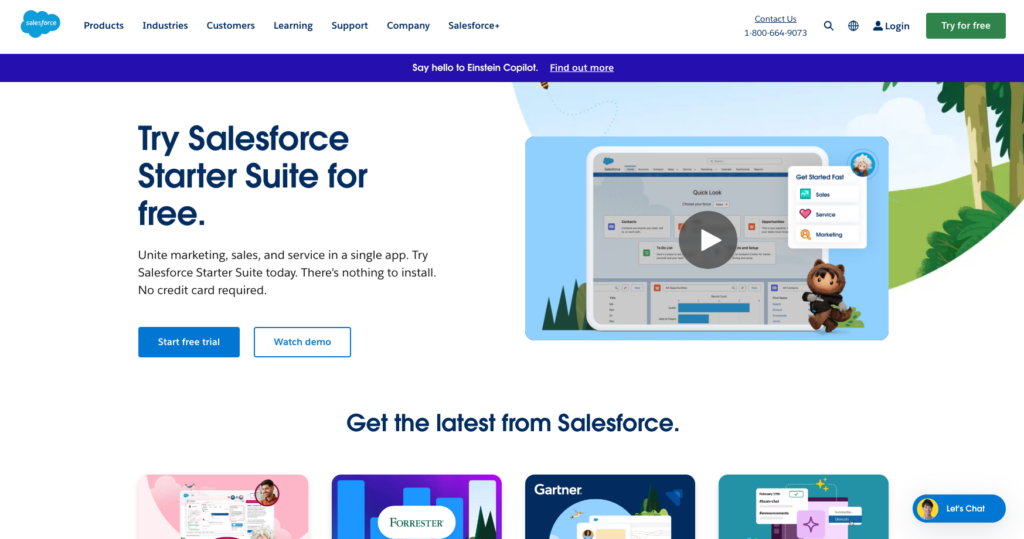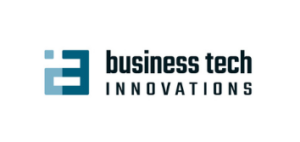
CRM (Customer Relationship Management) software plays a vital role in managing customer interactions, sales pipelines, and marketing efforts. Among the top contenders in the market are Salesforce, HubSpot, and Zoho CRM. In this comprehensive comparison, we’ll delve into the features, pricing, integrations, and user experience of each platform to help you make an informed decision for your CRM needs.
Overview
Salesforce
Salesforce is a leading cloud-based CRM platform known for its extensive features, scalability, and customization options. It offers a wide range of solutions for sales, marketing, customer service, and analytics, catering to businesses of all sizes and industries.

HubSpot
HubSpot is an all-in-one marketing, sales, and service platform that offers a comprehensive suite of tools for managing customer relationships. It’s known for its user-friendly interface, robust automation capabilities, and integration with other HubSpot products.

Zoho CRM
Zoho CRM is a cloud-based CRM solution designed to help businesses streamline their sales processes, improve customer engagement, and drive growth. It offers features such as lead management, pipeline management, marketing automation, and AI-powered insights.

Features
Salesforce
- Lead Management: Capture leads from various sources, track lead activity, and nurture leads through the sales funnel.
- Opportunity Management: Manage sales opportunities, track deal stages, and forecast revenue with customizable pipelines.
- Marketing Automation: Automate marketing campaigns, track campaign performance, and analyze ROI with integrated marketing tools.
- Customer Service: Provide personalized customer support, manage cases, and track customer satisfaction with service automation tools.
HubSpot
- Marketing Automation: Create, manage, and automate marketing campaigns across multiple channels, including email, social media, and ads.
- Sales Automation: Streamline sales processes, track deals, and automate repetitive tasks to improve productivity and efficiency.
- Service Automation: Provide personalized customer support, track tickets, and manage customer feedback with service automation tools.
- Reporting and Analytics: Gain insights into marketing, sales, and service performance with customizable dashboards and reports.
Zoho CRM
- Lead Management: Capture leads from various sources, assign leads to sales reps, and track lead activity through the sales pipeline.
- Pipeline Management: Visualize sales pipelines, track deal stages, and forecast revenue with customizable pipeline views.
- Marketing Automation: Automate email marketing campaigns, segment contacts, and track campaign performance with integrated marketing tools.
- AI-powered Insights: Leverage AI-powered insights to identify trends, predict outcomes, and make data-driven decisions.
Pricing
Salesforce
Salesforce offers various pricing plans tailored to different business needs, with pricing starting at $25 per user per month for the Essentials plan and ranging up to $300 per user per month for the Enterprise plan.
HubSpot
HubSpot offers a free CRM with basic features, as well as paid plans starting at $45 per month for the Starter plan and ranging up to $1,200 per month for the Enterprise plan.
Zoho CRM
Zoho CRM offers a free plan with basic features, as well as paid plans starting at $12 per user per month for the Standard plan and ranging up to $45 per user per month for the Ultimate plan.
Integrations
Salesforce
Salesforce offers a wide range of integrations with third-party apps and services, including marketing automation, e-commerce, analytics, and productivity tools.
HubSpot
HubSpot offers seamless integrations with various third-party platforms, including marketing automation, sales enablement, customer support, and analytics tools.
Zoho CRM
Zoho CRM integrates with popular third-party apps and services, including marketing automation, email marketing, accounting, and project management tools.
User Experience
Salesforce
Salesforce provides a comprehensive yet complex platform with a steep learning curve. Users praise its extensive features and customization options but may require training to fully utilize its capabilities.
HubSpot
HubSpot offers a user-friendly interface with intuitive navigation and straightforward setup. Users appreciate its simplicity and ease of use, making it ideal for businesses of all sizes.
Zoho CRM
Zoho CRM provides a user-friendly interface with customizable dashboards and workflows. Users find it easy to navigate and configure, with built-in tutorials and support resources available.
Conclusion
Choosing the right CRM software depends on your specific business needs, budget, and scalability requirements. Salesforce offers extensive features and customization options, making it suitable for large enterprises with complex sales processes. HubSpot provides an all-in-one solution with integrated marketing, sales, and service tools, ideal for small to medium-sized businesses looking for simplicity and automation. Zoho CRM offers a user-friendly interface with AI-powered insights and customizable workflows, catering to businesses of all sizes and industries. Evaluate your requirements carefully and consider factors such as features, pricing, integrations, and user experience to select the best CRM software for your organization’s needs.




